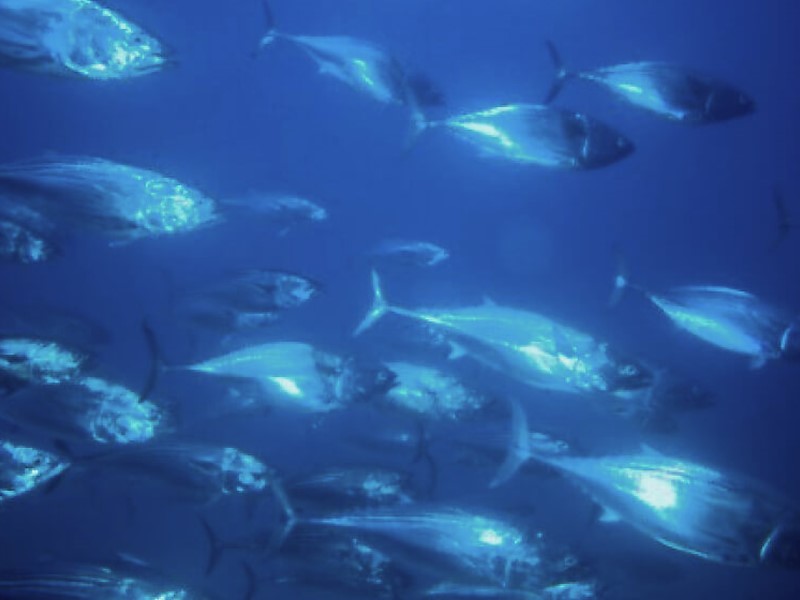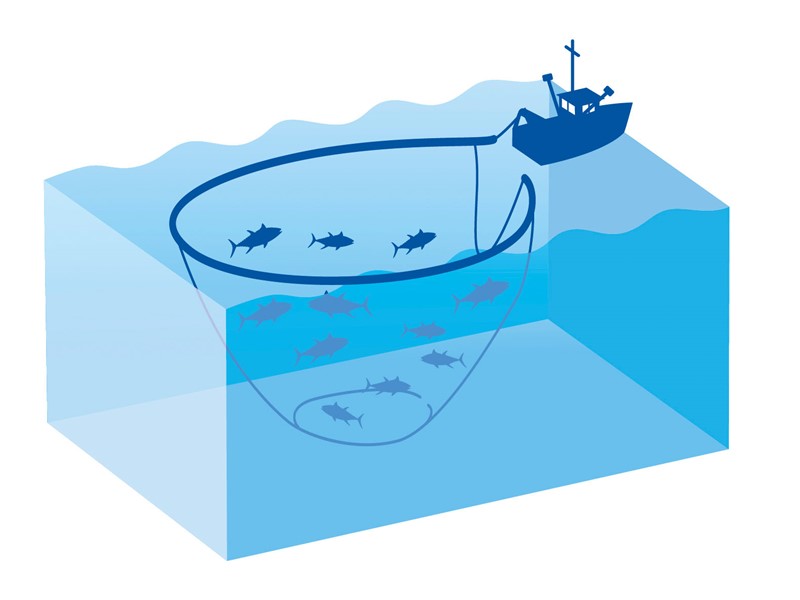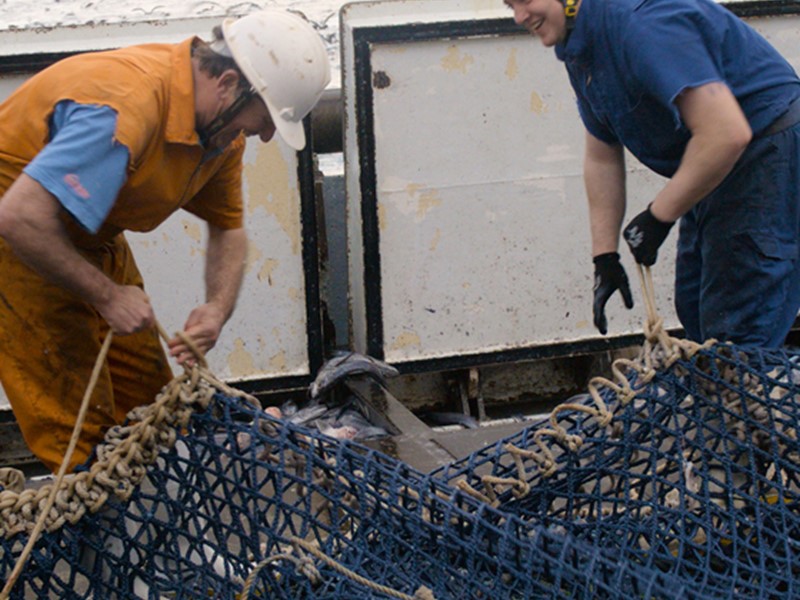
Our tuna is caught without the use of Fish Aggregating Devices or FADs, this is part of our commitment to reduce bycatch.
Sealord’s Sustainable and Equitable Tuna Procurement Policy outlines our commitment to source tuna only from fisheries that have abundant stocks, that offer traceability to the vessel and fishing region and have a non-tuna bycatch rate below 1% of catch. This policy is fully communicated and enforced with our partners.
Sealord uses skipjack tuna in our canned products. It is the most abundant of all the major commercial tuna species and only takes four years to reach maturity. As part of our policy, Sealord regularly reassesses the health of the fishery drawing on scientific data from the International Seafood Sustainability Foundation to ensure there is no overfishing today or in the years to come.
Sealord is committed to reducing dolphin bycatch. By not using FADs to harvest the skip jack, Sealord avoids the likelihood of capturing dolphins, turtles and other bycatch which is more prevalent when harvesting FAD caught tuna.
Our skipjack tuna is caught using ‘purse seine nets’. One of the most efficient methods to catch tuna, purse seine fishing can result in minimal bycatch compared with other fishing methods. Approximately 63% of tuna caught globally each year is from this method*. It is also important to note that any of the limited bycatch caught in the purse seine nets are consumed by crew or provided to local Western Pacific island communities when the vessels come into port. No bycatch is discarded.


Sealord is committed to working only with tuna suppliers and partners who recognise and mirror our commitments to our own employees. We are confident our suppliers take ethical labour practices seriously, they understand it’s the right thing to do and that businesses such as Sealord, and our customers, expect this.
We source our tuna almost exclusively from FCF Company Limited in Taiwan. FCF have internal and external auditors from third-party organisations to visit fishing vessels. The auditors access the vessels to find out whether fishing vessel management, facilities, and training are sufficient and fulfil operating requirements. The auditors also conduct interviews with crew members (anonymously) to ensure their working environment and labour rights aboard the vessel meet social standards and fundamental needs. Additionally, there are independent observers on board to ensure agreed fishing methods and appropriate crew conditions are maintained.
We have two main canning suppliers, Pataya Food Group and Chotiwat Manufacturing Public Company (CMC). Pataya is a signatory to the Ethical Labour Practice Code of Conduct of the TTIA (Thai Tuna Industry Association). All members of TTIA are required to have thorough and comprehensive third party audits of their processing facilities and supply chain to ensure full compliance with local and international laws and regulations regarding social and ethical standards.
CMC has achieved SA 8000 International standard, which is considered the highest level of social and ethical accountability standards.
In January 2013, Sealord was the first in New Zealand to sign WWF’s Western Central Pacific Tuna Conservation Pledge.
In May 2013, we announced we would no longer source tuna that had been caught with the use of Fish Aggregating Devices (FADs) to meet our target of reducing non-tuna bycatch to below 1%. FADs are floating objects that attract fish used by some tuna fishing companies.
We will continue to source our tuna from the best performing fisheries with the lowest overall environmental impacts.
Our commitment to sourcing FAD-free tuna is part of who we are as a business. For each catch, we have full traceability back to the vessel that caught the fish. We are then able to determine when and how it was caught, the region in the Western Pacific where it was caught as well as where and when it was canned. This process ensures we know how our fish are getting from boat to plate.